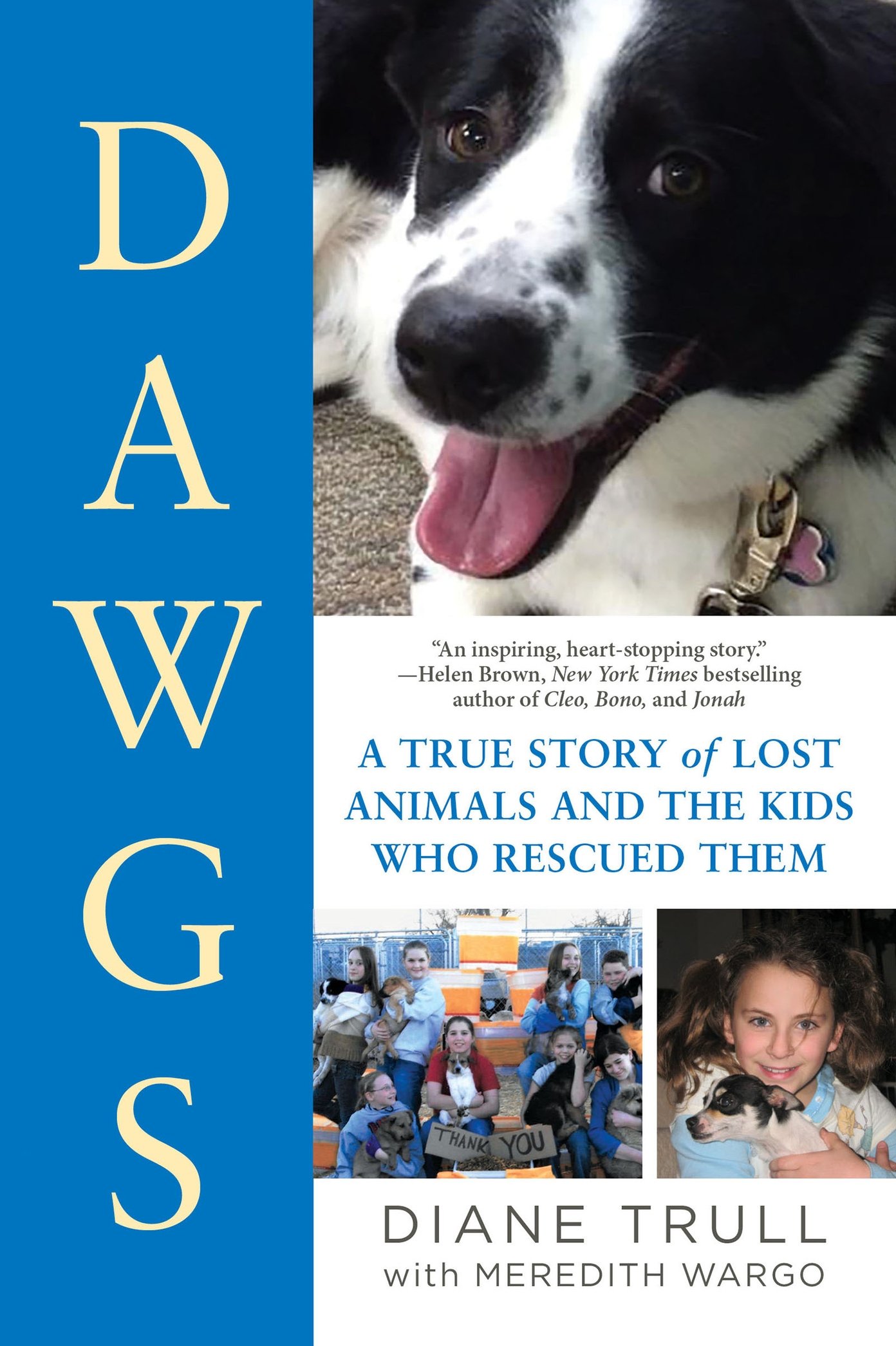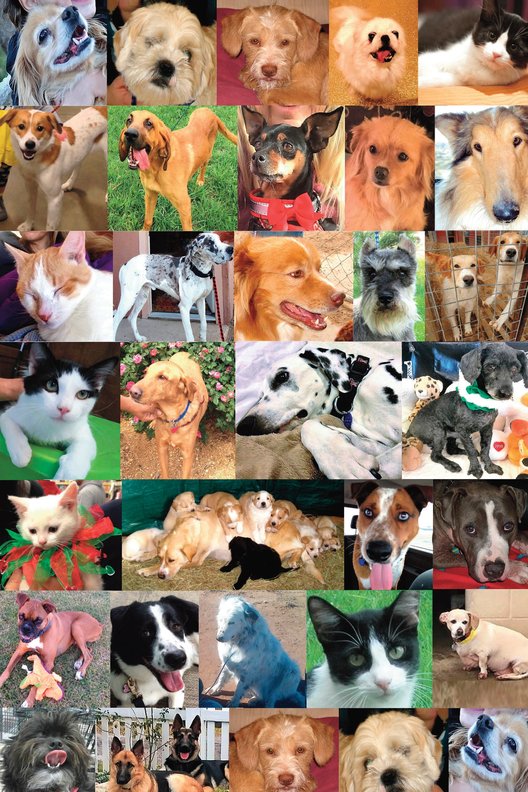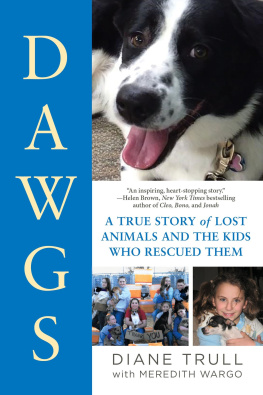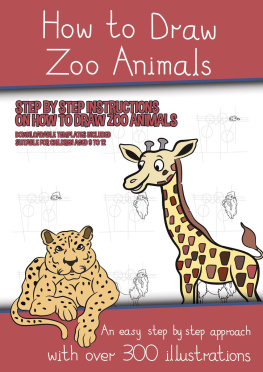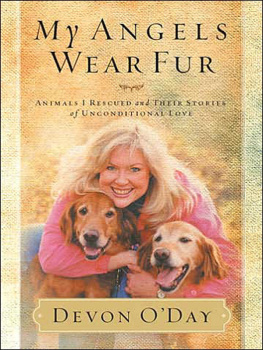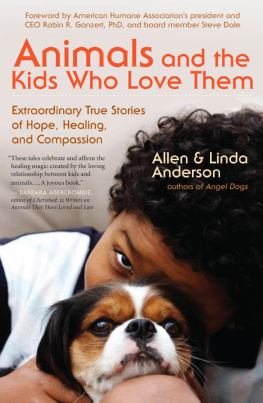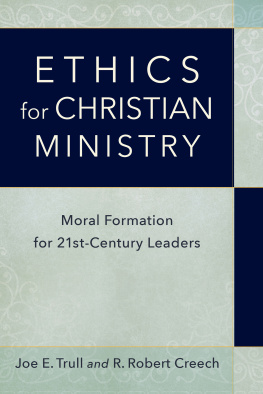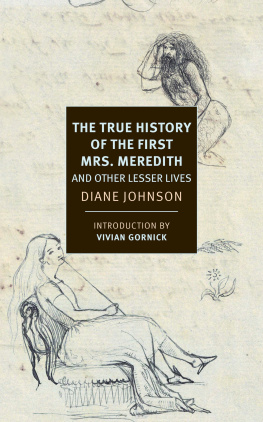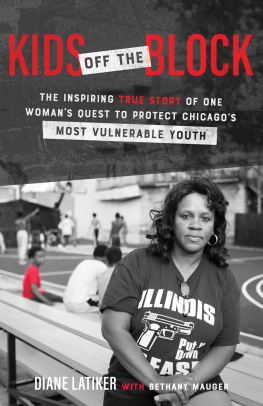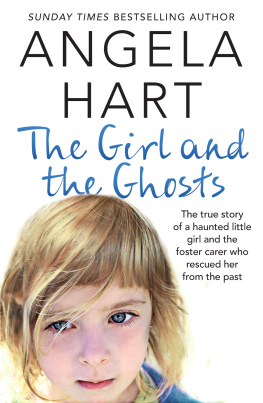Acknowledgments
T HE DICTIONARY DEFINES thank you as a polite expression of ones gratitude. After reading that definition, Im not sure how those two little words will adequately convey my feelings and appreciation toward all the people who have so generously supported DAWGS throughout the years.
At the beginning of this journey, our focus was simply to help as many animals as possible make it into their forever homes. What we didnt expect was the outpouring of goodness and kindness from countless people who shared our passion.
Every donation that we have ever receivedno matter the amounthas meant the world to us. From the senior citizens who faithfully send us ten-dollar checks every month along with a handwritten note to those individuals who, without batting an eye, answer our frantic pleas for help whenever we face major expenses in running the shelter, it all matters. We couldnt have achieved what weve accomplished if it werent for the generous benevolence of our loyal supporters and donors.
And although many of you were total strangers in the beginning, you have become trusted and cherished friends over the years. Its an honor to have you in the DAWGS family.
So, to each of you who has lovingly supported our cause with donations, adoptions, words of encouragement, or outpouring of love, my most humble and heartfelt thank you.
Diane
Writing this book has long been a dream of mine. There have been so many people who have traveled this amazing journey with me. I am grateful to my husband, Tom Langley, my brother, Mark Wargo, and my dearest friend, Jane Goodsill, for your endless encouragement and support. My love and thanks.
I would also like to thank Michaela Hamilton and the entire team at Kensington, who share a love for animals and whose deep affection for this story was evident from the very beginning.
Lastly, I would like to thank the Trull familyMark, Diane, Katie and Tylerfor their dedication, compassion, and devotion in helping countless number of animals find new homes throughout the years. There would be no story at all if not for your tireless acts of love that have inspired so many.
My hope is that DAWGS will be a lasting testament to all those involved in animal rescue, no matter how young or old.
Meredith
Afterword
BY MEREDITH WARGO
I FIRST LEARNED about the Dalhart Animal Wellness Group and Sanctuary in 2004, after reading about their efforts in the Best Friends Animal Society magazine. Although I was touched by the heartwarming tale, I remember having some reservations about the story. Its nice to think that children could create a no-kill world for the strays in their area, but, even though Im not a cynic, logic told me that the odds of a group of elementary school-age children successfully running a shelter were probably low.
My curiosity remained piqued, though, long after reading the article. I started following the group on their social media sites and learned more about what they were trying to accomplish. Although they were facing unprecedented odds from Mother Nature and their community, the group seemed focused on their mission. The more I learned, the more I was impressed with their unusual model, as well as their dedication.
My relationship with DAWGS officially began when I sent them a small donation and received a handwritten thank-you note from cofounder Diane Trull in return. In our increasingly digital and remote world, Dianes choice to send a personalized note spoke volumes about her character.
Over the next two years, Diane and I started a long-distance friendship. I continued sending donations and Diane continued penning her heartfelt thank-you notes. It was through this exchange that I got a glimpse of what life was like at DAWGS. I shared in their sorrows when they were confronted by myriad challenges and celebrated their triumphs, no matter the size.
Although I lived seven hundred miles away from Dalhart at the time, I felt connected to their cause and wanted to somehow help the group. I offered to donate my freelance services and write an article about the sanctuary in the hope of gaining some publicity and support for what they were doing. Diane graciously accepted.
Never having traveled to the Texas Panhandle before, I eagerly planned a trip to Dalhart to interview the kids, Mark, and Diane, as well as get an inside look at what its really like to manage a shelter that houses hundreds of animals. I remember having some trepidation prior to my trip because the rubber was about to meet the road.
What if the shelter wasnt anything like how its portrayed on their website? What if the animals werent being properly cared for? What if the children werent really involved in caring for the animals? What if, what if, what if...
Fortunately, all my fears were allayed shortly after my arrival. The facilities were clean, the animals were well cared for, Diane and Mark were as genuine and down-to-earth as I believed them to be, and the children were the driving energy behind the shelter. It was easy to see that everyones love for the animals permeated every aspect of the sanctuary.
Its no secret that homeless animals abound in every communitylarge and small, urban and rural. And for most shelters, the problems and struggles are real and ongoing. In that regard, DAWGS is no different from any other shelter. There are always too many animals in need of homes and not enough funds to care for the ones that are lucky enough to find temporary sanctuary with a rescue group.
Sadly, more than two thousand, two hundred dogs and cats are put to death every single day in Americas shelters because there are simply not enough homes for them. Each of these animals is an individual, a life worth saving. Although the number of homeless animals varies by state, the majority of animals euthanized in shelters are the offspring of accidental litters.
So, what is the solution to preventing unwanted births and ensuring that animals dont have to face a lonely and heartbreaking death?
Spaying and neutering.
Its a passionate topic among those involved in animal welfare, including state, city, and local jurisdictions, veterinary associations, advocates, and pet lovers. Most groups agree that something needs to be done to curb the homeless animal overpopulation. And most agree that community awareness and educationnot more lawswill address the root problem of the crisis.
Fortunately, the spay-neuter movement is gaining traction. And as it grows, so does the availability of affordable resources. There are numerous initiatives that provide low-cost or free spay and neuter services throughout the country. While many of these services are for low-income families or senior citizens, there is ample help available for anybody who is interested in getting their pets fixed.
Thats why Mark and Dianes dedication to promoting spay-neuter awareness throughout their community is spot-on and commendable. Its the only viable means of curbing animal homelessness while lessening the burden on shelters and rescue groups in caring for these animals.
Its simple arithmetic. When intake numbers are reduced, shelters have more resources to create programs that arent possible when they are overwhelmed caring for too many animals. Instead of spending their limited funds on euthanasia, they can focus on training and rehabilitating the animals in their care, which greatly improves the animals chances of being adopted.
